The Value of Traditional Knowledge in Manta Ray Conservation in the Maldives
2014
Tamaryn Jean Sawers (MSc Marine Environmental Management - University of York)
Keywords: Traditional fishers knowledge • Reef manta ray • Manta alfredi • Whale shark • Rhincodon typus • Historical abundance • Protection • Conservation • Anecdotal • Baa Atoll • Maldives
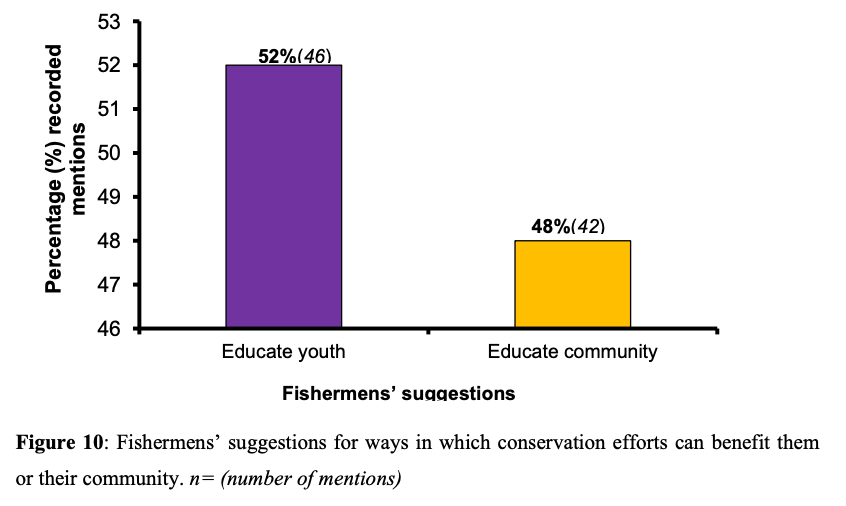
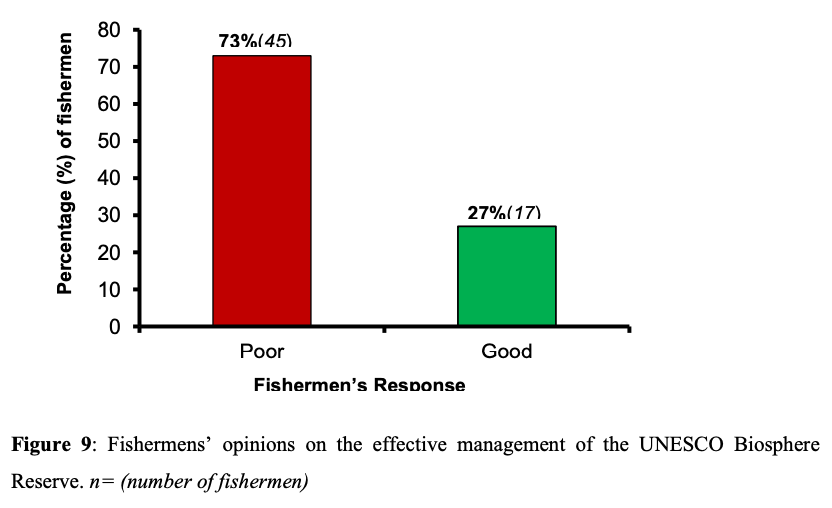
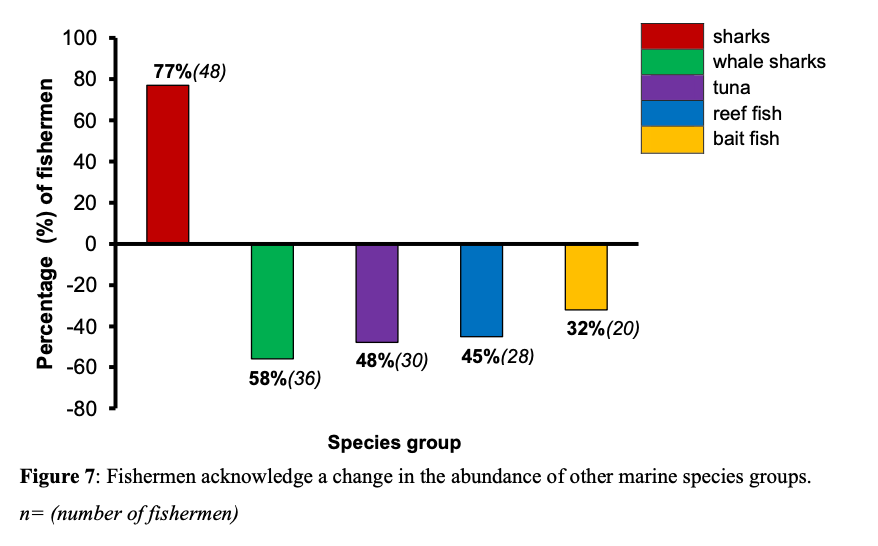
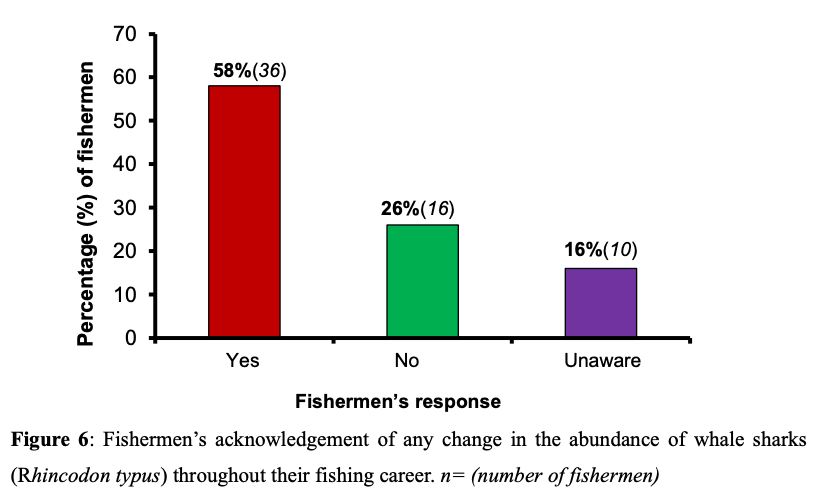
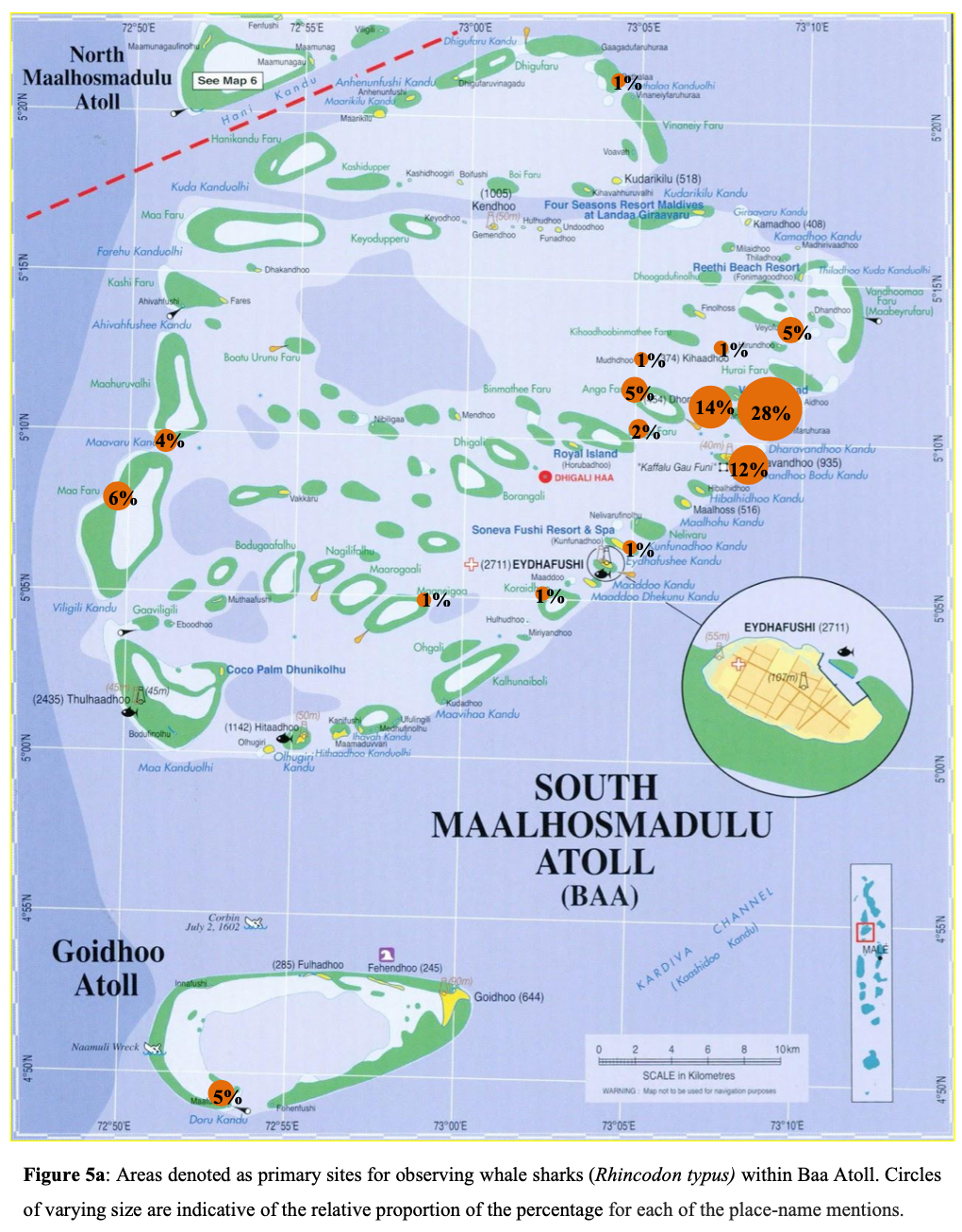
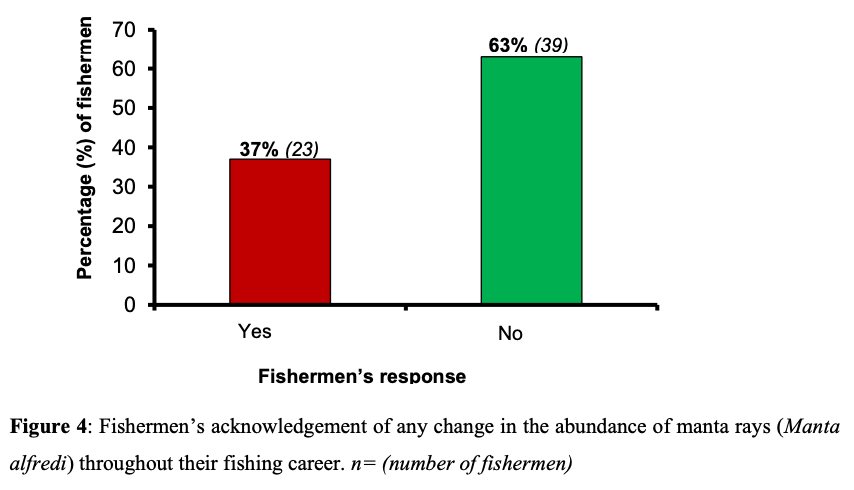
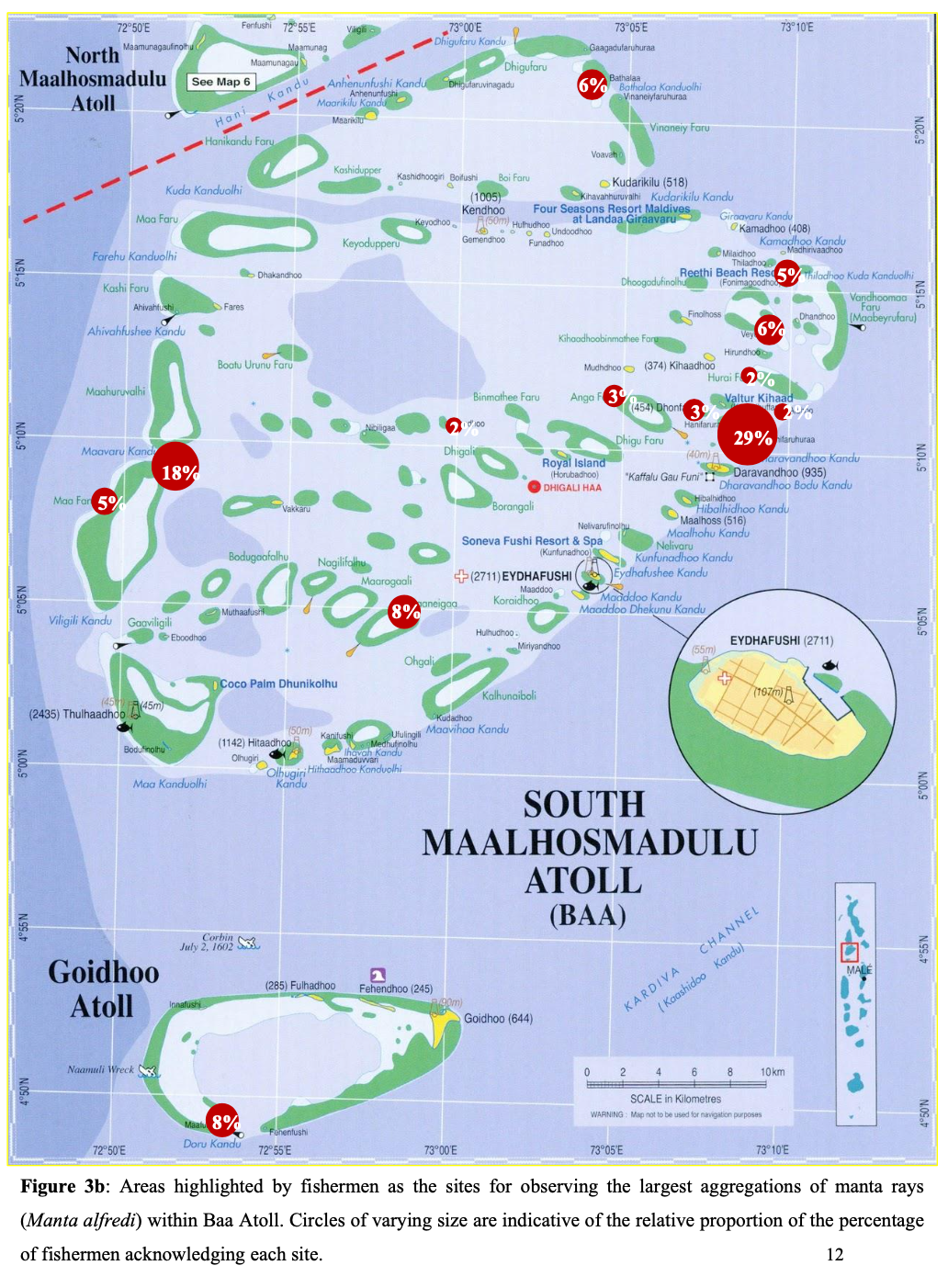
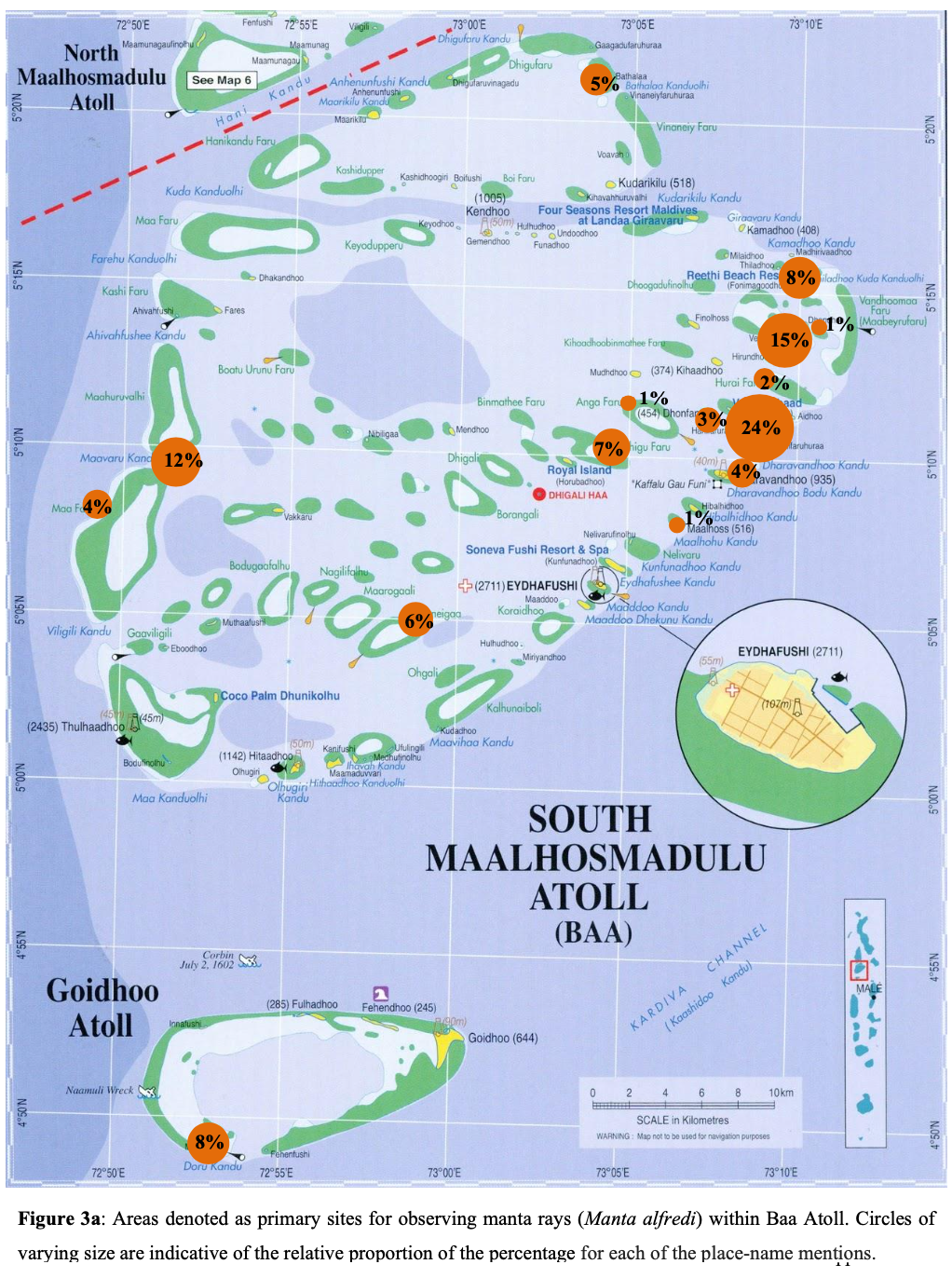
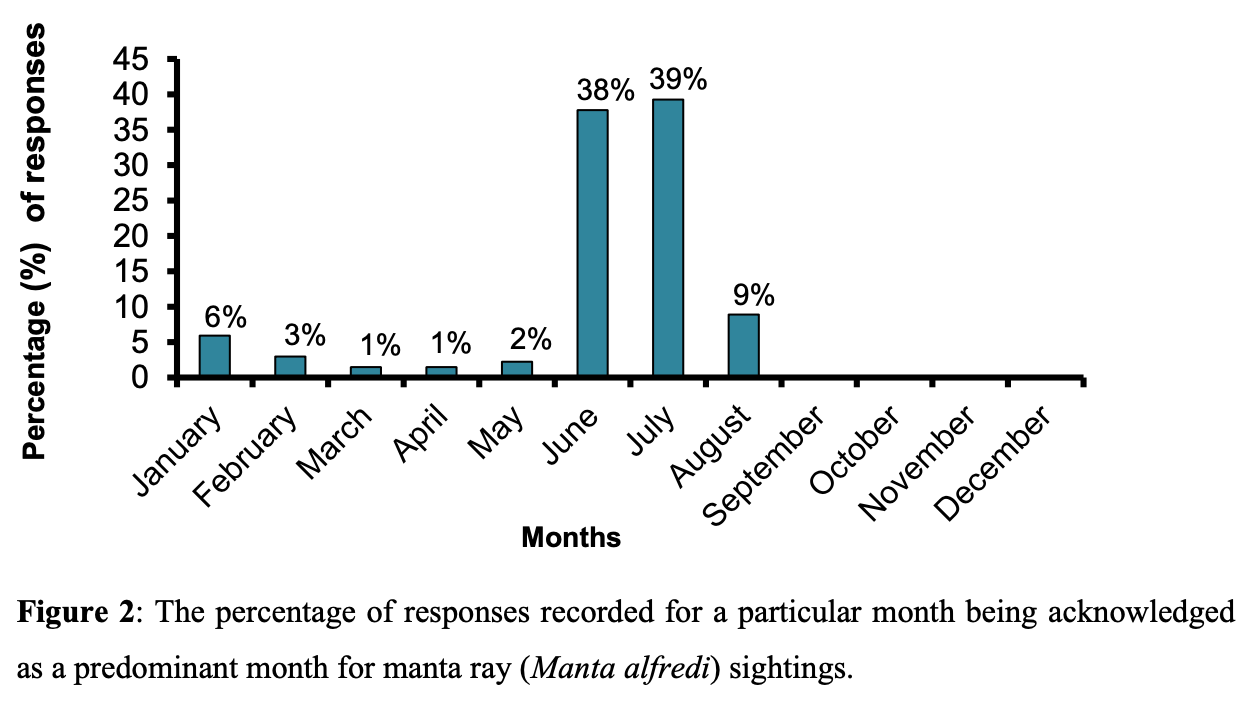
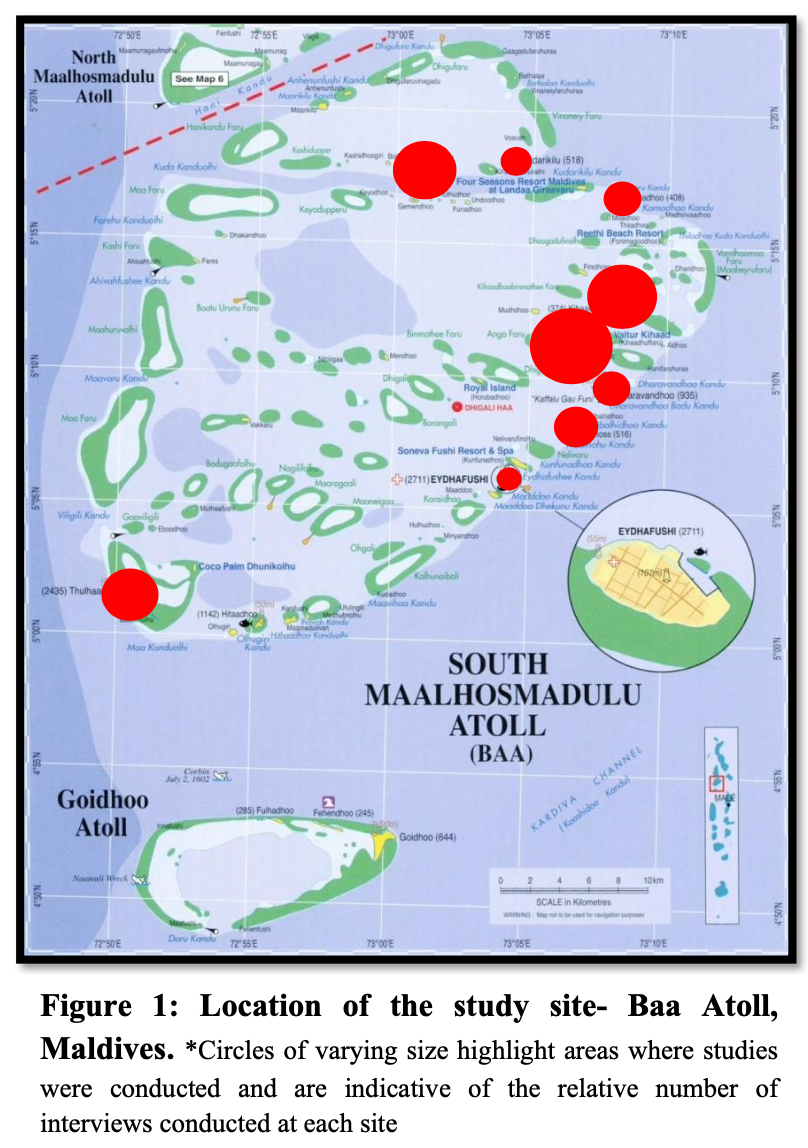
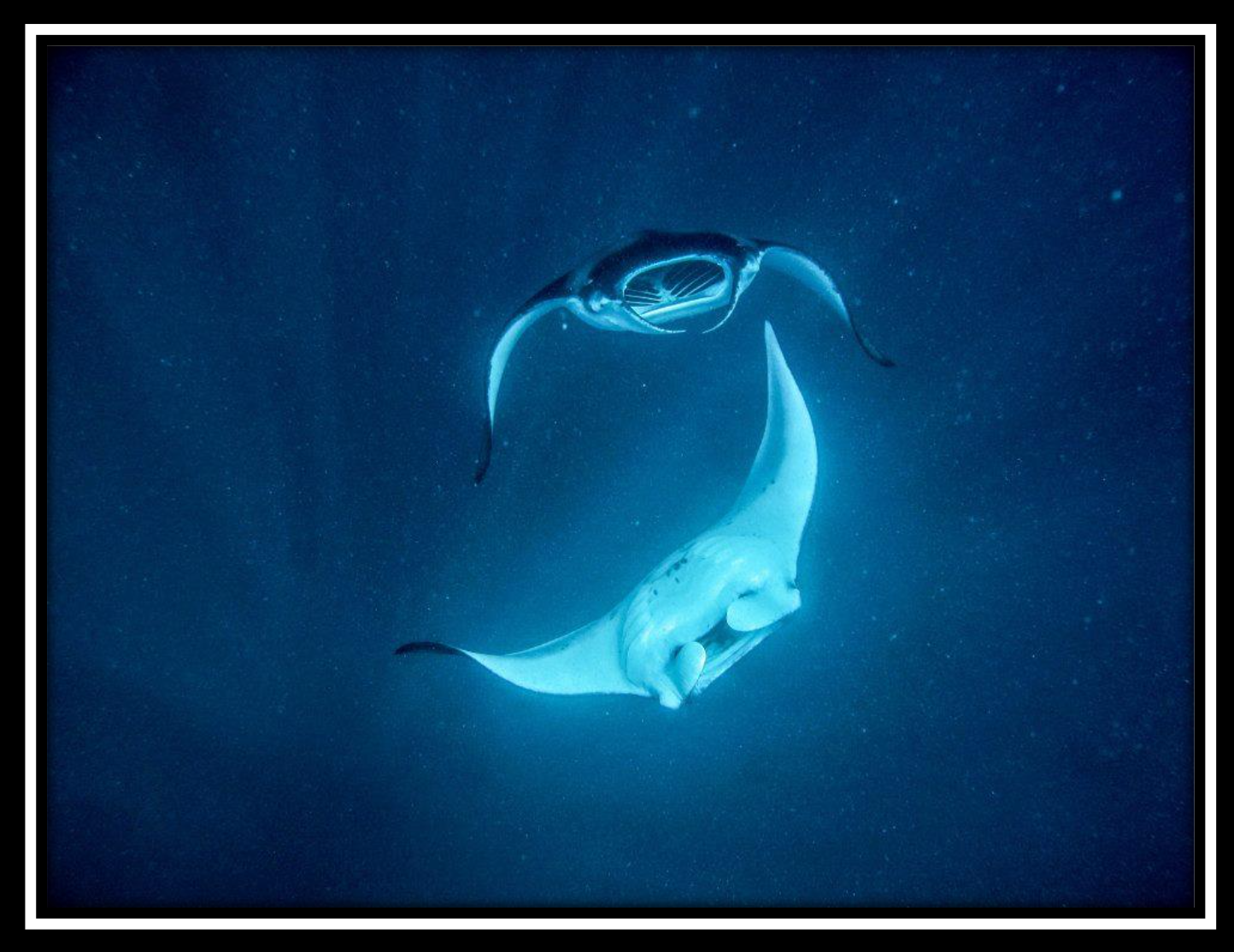
Summary: Fishing pressure poses a threat to manta rays worldwide, and understanding their biology and threats is crucial for conservation. The Maldives Manta Conservation Programme (MMCP), formerly known as the Maldivian Manta Ray Project (MMRP), has contributed valuable knowledge, but historical data is limited. This study gathered local fishermen's traditional knowledge through interviews to assess changes in manta ray abundances and other species in Baa Atoll, Maldives. The findings showed that fishermen recognised the importance of protecting mantas for tourism and ecological value. Concerns were raised about declining abundances of whale sharks, tuna, reef fish, and baitfish, while shark populations were reported to be increasing. Traditional knowledge helped identify conservation hotspots and highlighted the need for improved education and communication for better management in the Maldives.
Abstract
“Increasing fishing pressure worldwide poses a considerable threat to manta rays (Manta spp.) with reports of population declines in many parts of the globe. The K-selected life history strategy of mantas further intensifies their vulnerability as population recovery is likely to be slow. Conservation of this vulnerable species is dependent on understanding their biology, ecology, and current (as well as future) threat status. Since 2005 the Maldivian Manta Ray Research Project has contributed extensively to the knowledge of reef manta ray (Manta alfredi) behaviour, population dynamics, and migration patterns in the Maldives. However, it is not possible to fully interpret this information without considering observations over longer time-scales. Given that limited direct data exists prior to 2005, this study aimed to gather the historical knowledge of local fishermen to evaluate how manta ray abundances may have changed over time by drawing comparisons between this traditional knowledge and current day observations. Sixty two semi-structured interviews were conducted between July and August across nine inhabited islands within Baa Atoll, Maldives. Fishermen were questioned on their local ecological knowledge of charismatic species, with particular reference to manta rays, their awareness of regulations regarding the protection of this species, and their attitudes towards conservation in the region. The survey aimed to ascertain whether any direct anthropogenic impacts pose a potential threat and to help identify how management can improve their conservation. The findings reveal a consensus amongst local fishermen to protect manta rays with 98% of the respondents recognizing the importance of safeguarding mantas for tourism, to identify places with abundant baitfish and for intrinsic values. The research conducted also afforded the opportunity to assess changes in the abundance of other charismatic species frequenting the region with results highlighting concern over declining abundances of whale sharks, tuna, reef fish, and baitfish (noted by 58%; 48%; 45% and 32% of the respondents respectively) and suggesting an increase in shark populations, mentioned by 77% of the fishermen. The use of traditional knowledge has also proved to have been instrumental in the identification of ‘hotspots’ for manta and whale shark aggregations in need of future monitoring and protection and has exposed weaknesses in the management of the Baa Atoll UNESCO biosphere reserve. The findings indicate a need for improved education and communication between authorities and the public and highlight the value of traditional knowledge in complementing scientific information for improved conservation management in the Maldives.”
Author Affiliations
University of York
Maldives Manta Conservation Programme
The Manta Trust
